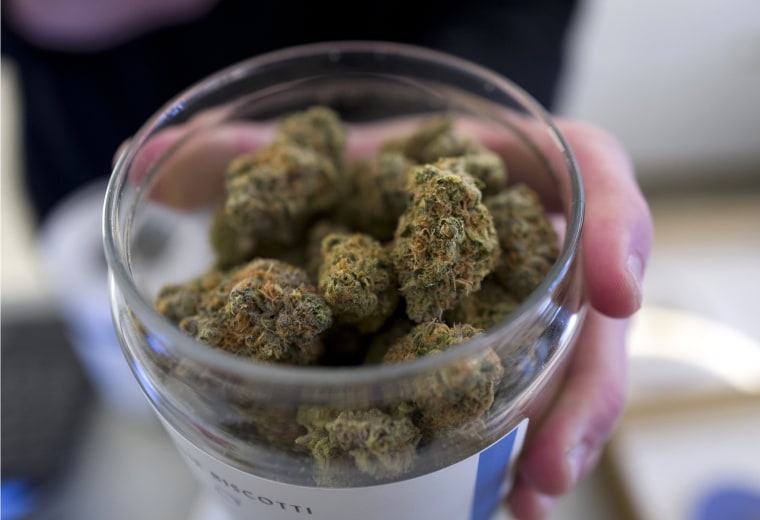The risk of autism may be greater in babies born to women who used marijuana during pregnancy, a new study suggests.
In an analysis of data from more than 500,000 Canadian mothers and their children, researchers found a 50 percent increase in the risk of autism spectrum disorder in kids whose mothers had used cannabis while pregnant, according to the report, published Monday in Nature Medicine.
“Cannabis is not a benign drug and any use during pregnancy should be discouraged,” the study’s lead author, Daniel Corsi, an adjunct professor at the University of Ottawa and a scientist at the Children’s Hospital of Ontario Research Institute, said.
“We know that cannabinoids can cross placental tissue and enter the fetal bloodstream,” Corsi said. “There are cannabinoid receptors present in the developing fetus and exposure to cannabis may impact the wiring of the developing brain.”
While it’s known that substance use in pregnant women can affect a fetus’s neurodevelopment, the question of whether cannabis use is a risk factor for autism has not been thoroughly investigated, Daniele Fallin, director of the Wendy Klag Center for Autism and Developmental Disabilities at the Johns Hopkins Bloomberg School of Public Health, said in an email.
Fallin, who was not involved with the new research, said that the observational study cannot prove that cannabis use by pregnant women causes autism. “This is an interesting first step, but much more work is needed to implicate maternal cannabis use specifically in autism risk,” she added.
To take a closer look at possible neurodevelopmental impacts of cannabis on developing fetuses, Corsi and his colleagues reviewed data from all Ontario births that occurred from 2007 to 2012, which was before the drug was legalized in Canada. Their final analysis included 503,065 children, 3,148 of whom had mothers who used cannabis while pregnant.
The children were followed for an average of seven years, during which 7,125 were diagnosed with autism spectrum disorder. The rate of autism diagnoses among children with in utero cannabis exposure was 2.2 percent, as compared to 1.4 percent in those whose mothers did not use the drug during pregnancy.
When the researchers accounted for factors that might skew their results, they found that the risk of autism was increased by 50 percent when mothers used cannabis during pregnancy.
"This finding gives some clues that exposure to cannabis in utero is associated with autism, but many questions remain,” Ziva Cooper, interim director at the UCLA Cannabis Research Initiative, said in an email. She noted that the women in the study were asked to self-report cannabis use, and only asked about it at one point early in their pregnancy.
Still, “these are important findings given the increase of cannabis use in pregnant women,” Cooper, who was not involved with the new research, said.
Last summer, research from Kaiser Permanente Northern California found that cannabis use is on the rise among pregnant women in the U.S. The percentage of women who used the drug while pregnant rose from 1.9 percent in 2009 to 3.4 percent in 2017.
Canada legalized recreational marijuana use in 2018, a change that will likely lead to an increase in people using the drug, said Dr. Richard Miller, professor of pharmacology at Northwestern University’s Feinberg School of Medicine and author of “Drugged: The Science and Culture Behind Psychotropic Drugs.” The new study raises an important question: Will it be safe for pregnant women to use?
“The main finding — a very newsworthy one — is that the number who might get autism increased by a significant amount,” Miller said. “The take home message of this paper, which I think is fair enough, is that women should really think very carefully about this.”
CORRECTION (Aug. 18, 2020, 10:36 a.m. ET): An earlier version of this article misstated the name of the institution at the Johns Hopkins Bloomberg School of Public Health. It is the Wendy Klag Center for Autism and Developmental Disabilities, not the Wendy King Center for Autism and Developmental Disabilities.
Follow NBC HEALTH on Twitter & Facebook.

